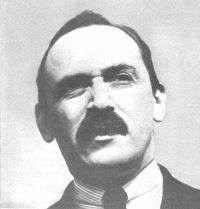I’m tired of reading books about depressed, alcoholic, hopeless twenty-somethings.
I’m just tired of it, man.
I get it. I really do. Your 20s is probably the most volatile, unpredictable decade of your life. It’s a time period that’s easy to write about because it connects with so many people.
We’ve all been there trying to figure out what to do with our lives, trying to figure out what that girl we like is thinking, trying to figure out if we really hate our job enough to quit and pursue something new. For some people, trying not to be drunk all the time.
So I understand why authors like Nathanael West feel led to write about this time period. And I understand why Hemingway wrote about it in The Sun Also Rises or Malcolm Lowry in Under The Volcano or Jack Kerouac in On The Road. But when you put all these books on a list and read them relatively close to each other, the reading gets cumbersome.
So with that, I’m not sure I gave The Day of the Locust a fair shake. I’m bringing nearly four years of bias—that of reading depressing books about twenty-somethings—when I opened the first page of The Day of the Locust.
And after reading this book’s 150 pages, I feel pretty much the same about The Day of the Locust as when I started—and that feeling is one of indifference.
At least in regards to the other books on the list, The Day of the Locust is unique in its setting—1930s Hollywood. The loose story follows the sad lives of an artist named Tod Hackett, a part-time bit actress, part-time prostitute, an angry dwarf, a Mexican cockfighting ringleader, a sad pathetic sack named Homer Simpson, and several other Hollywood outcasts.
You read that correctly. The story does indeed feature an angry dwarf, a cockfighting ring, and a depressing old pervert named Homer Simpson—yes, Homer Simpson.
Nathanael West drops you into the middle of this mess of characters without much context. You stay with them for a little while, and then the story ends and you’re pulled right out again. The novel moves linearly for the most part, but there’s no tightly wound plot here. The Day of the Locust is more of a character study than anything else.
The Hollywood angle is fresh. West portrays a Hollywood that is nowhere near as glamorous as you might think. The people feel a little more like sideshows at a traveling carnival, instead of Hollywood stars.
But that’s basically what they are, sideshows, because these characters are the outcasts of Hollywood, the people who traveled to make it big but never saw that dream happen. Yet they still hang around, waiting and hoping for their big chance.
And that’s the fuel that drives the story. It’s the despair of these characters that ties them together throughout the novel.
This quote from The Day of the Locust pretty much sums up every character:
“Only those who still have hope can benefit from tears. When they finish, they feel better. But to those without hope, whose anguish is basic and permanent, no good comes from crying. Nothing changes for them. They usually know this, but still can’t help crying.”

Nathanael West
Each character, in his or her own way, seems on the verge of tears. Maybe not physical tears, but at least an emotional breakdown.
I have to credit Nathanael West for making these characters shine in such a bleak novel. You can feel their sadness and empathize with them, despite how unlikeable they are.
Ultimately, though, The Day of the Locust just fell flat for me. Like I mentioned at the beginning of this review, maybe had I read this novel earlier in the 101 Books, I would’ve appreciated it more.
But as it stands, I’d have to say this was a mostly forgettable experience.
Other Stuff
The Opening Line: “Around quitting time, Tod Hackett heard a great din on the road outside his office.”
The Meaning: The “locust” reference likely comes from Exodus in the Bible, when God sends a plague of locusts on Egypt when the pharaoh doesn’t free the Jews. The novel is filled with self-destruction and a lot of ominous undertones, which ties in well with the title.
Highlights: Nathanael West is excellent at character profiles. You really get to know these Hollywood outcasts, even though you might not like them. The book also provides a different side of Hollywood than you might be accustomed to seeing.
Lowlights: The cockfighting scene is memorable, in a pretty grotesque way. Otherwise, nothing jumps out at me as a lowlight, but that’s mainly because the book was mostly forgettable, in my humble opinion.
Memorable Line: “Only those without hope can benefit from tears.”
Final Thoughts: This is a book that I picked up, read, and put back down over the course of a week, without it making much of an impression. Nothing about The Day of the Locust says “classic novel” to me, but that’s why lists like the Time list are so unique, and its inclusion on the list is proof that they are certainly subjective.

